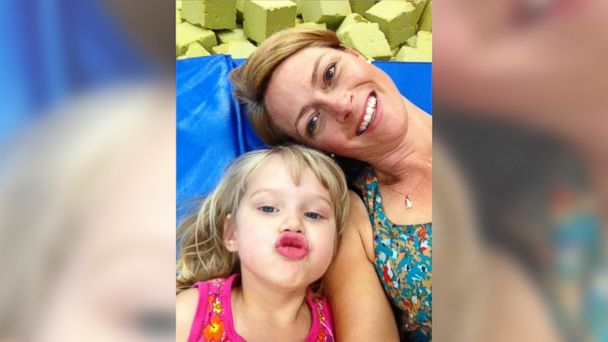Sites Match Potential Co-Parents, Skip Love and Marriage

Courtesy Rachel Hope
Rachel Hope of Los Angeles says she's ready to be a mother again. She'd like to get pregnant next month. The thing is, she has no idea who the father will be.
Hope is one of a growing number of Americans interested in exploding the old 1950s notion of the nuclear family. She's not looking for love. She wants a co-parent.
"If you're blessed to meet a soul mate and you just gel and it works and you have children, that's ideal, no one is disputing that" said the 42-year-old mother. "But what about the rest of us who didn't meet that person, or not in time?"
Related: Online singles seek parenthood but no sex
Hope already has two kids from two different fathers: Jesse, 22, whose father was her childhood best friend, and Grace, 4, whose father is her current housemate, Paul Wenner.
Wenner loves his daughter, but at age 67, he doesn't want any more children.
"I think Grace is perfect for me," he said. "But you know, one is OK."
Hope is looking for a new father online at Modamily - the name is a mash-up of of "modern" and "family" - one of a number of new web sites for those seeking compatible partners looking to create and then raise a child.
Related: How to co-parent successfully when the relationship is over
More than 5,000 people have signed up on L.A.-based Modamily. Other co-parenting websites claim similar numbers, including a growing number of sites serving gays and lesbians in committed relationships who are now interested in having children.
Unlike an anonymous sperm bank, the website helps people find partners based on mutual values, shared interests and common concerns.
Modamily's CEO and founder Ivan Fatovic explained that the website also steers co-parents to the resources they will need after they connect with the right match.
"You see a lawyer, get a co-parenting agreement, do background checks to make sure everything is OK," Fatovic said.
Finances, costs, and custody are all issues to sort out. So is how couples plan to become pregnant. Will it be natural or artificial insemination? Most likely, the latter.
Legal experts told ABC News that making babies this way could be fraught with potential pitfalls. The applicable laws vary by state, which makes the process enormously complicated.
Dr. Robert Fellmeth, executive director of the Children's Advocacy Institute, said there's a reason for doing things the old-fashioned way.
"I'm a 19 th century romantic in saying that there is an advantage in at least trying to have the relationship between the parent that's deep and meaningful and goes beyond simply the mutual desire to have a child," he said.
"The child benefits from having two parents who love each other, who are willing to sacrifice for each other," he said. "If it fails, it fails, but at least try!"
Hope doesn't see it that way. She admits hers is not the most romantic approach to parenthood.
"I like it that way!" she said. "I like it that way!"